UNIVERSAL HEALTH CARE
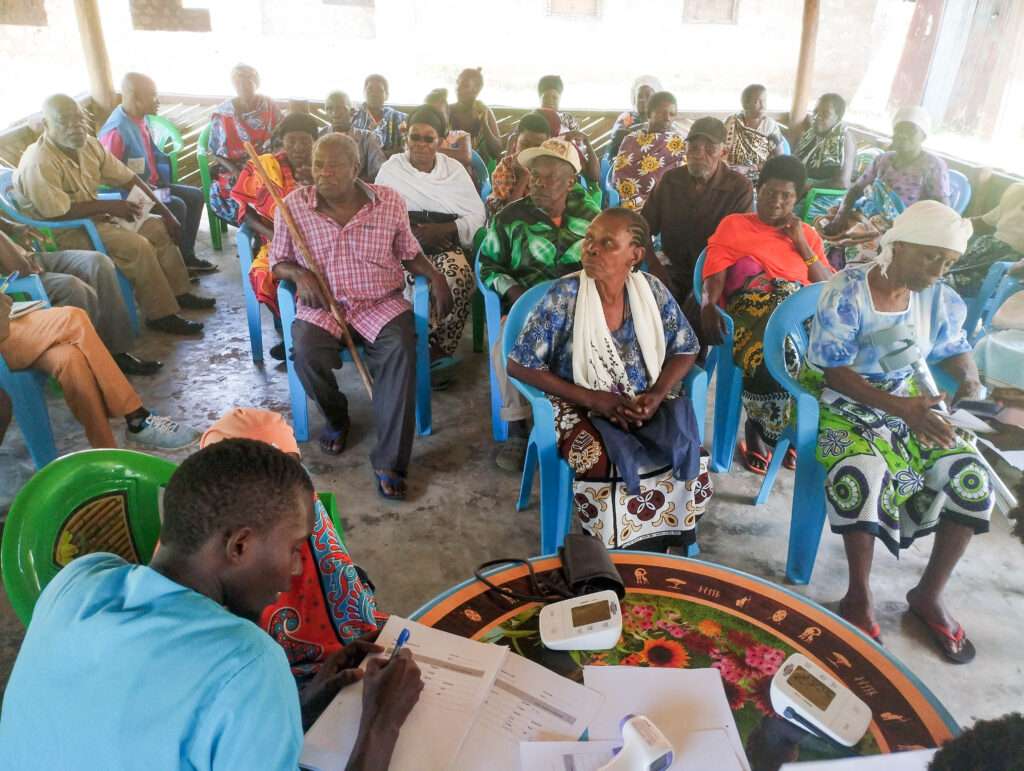
universal Health Care
Project: Universal Health Coverage funded by German Doctors under CHPF at Health Information Points (HIPs)
CHPF Profile/About us.
A health information point (HIP) is a level one component and a central point of coordination of health care activities, including project activities, at the community level. Through the HIPs, healthcare services have been decentralized hence brought nearer to the community. The HIPs are also a learning portal for the NCMTC students. During the pilot, the HIPs were coordinated by community health coordinators in collaboration with the CHPs, and pilot project staff together with NCMTC college trainers and students planned and carried out the project activities. Some activities extend up to the household level or include collaboration with the primary schools.
Currently there are five operational HIPs in the pilot project catchment area, four of which are located at the primary schools. The HIPs are easily accessible, strategically located tents, which are functioning as a fixed point from where people can access basic healthcare services close home on daily basis. Staff from CHPF and NCMTC together with students from NCMTC and CHPs work together on weekdays to provide a variety of health promotion services. In addition, the HIPs are used during dispensary outreaches.
CHPF with the support from German Doctors organizes and supports the healthcare services through the HIPs in various villages linked to specific community health units and specific facilities in Kilifi-South and help to empower the communities in those areas to better be able to advocate and lobby for their own health matters.
our goals
Our Project Goal
To improve the health status of the community in the project target area, with special attention to vulnerable and minority groups through enhancing and improving the quality of health services at dispensary level.
Outcome
Communities and individuals are empowered to strengthen their health and advocate for health rights
Target Groups
-
Within the target area the project generally takes a life stage approach, with specific activities targeting people in a specific stage of life. Within those, there is an explicitly focuses on the most vulnerable and minorities. Those segments of the population who suffer most from the scarcity of health services, and whom are receiving explicit attention, are the following:
• Pregnant women
• Families with young children and single mothers
• Children in primary school age
• Adolescents (10-18 years) and youth (19-24 years)
• People living with chronic conditions (diseases or disabilities)
• Elderly (60+y)
Milestones
The project achievements/milestones
- Home Based Care Services including follow up visits for the elderly people.
- Educating and empowering the community members on the importance of seeking health services earlier, going for ANC, PNC and CWC follow ups as required.
- Improved the environment hygiene of the community through health education.
- Through the UHC project, services such as CWC (growth monitoring services) have been brought close to the community as they are now provided at the HIPs.
- Initiation of the kitchen gardening skills has boosted the nutrition status of many families.
- Through the project, number of CHVs has been increased and also imparted with knowledge.
- Community is now aware of the preventive and promotive measures provided at the HIPs and availability of services.
Interventions
- Health education on primary and secondary prevention of disease and assistance for those who report to the HIPs with specific health problems. This targets the chronically ill people and prevention of chronic illnesses.
- Home visits to postnatal care and home based-care clients for close monitoring and management
- Hygiene and sanitation with the school going children at the schools and during home visits being implemented at the schools where the HIPs are currently located. Through the HIPs, health education is provided and the development of children monitored
- Growth monitoring of children below 5 years and provide pro-active provision of health education including family planning.
- Antenatal care and services for pregnant women who are monitored and supported to empower them to make timely and informed choices to have the best attainable experience during and after pregnancy.
- General/psychosocial counselling by the social worker to the waiting clients at the HIPs, during outreaches, at social gatherings etc.
- Referrals to the dispensaries or to higher levels for clients in need of further management
- Community awarare monitored and pro-actively provided with health education including family planning and support to empower pregnant women to make timely and informed choices to have the best attainable experience before, during and aftereness campaigns on child rights, gender based-violence (GBV), jiggers, malaria, bed bugs and elderly abuse
- SRHR awareness creation through cascading of activities at the HIPs
- Advocacy through community empowerment on health issues to the direct and indirect beneficiaries
- Home based care services (HBC)
- Physiotherapy services where the CHPs does sensitization to the community on the available services
HOME VISIT
Home based care and home visit cannot be isolated from the Universal Health Care (UHC). Home visit is defined as the process of providing the nursing care to patients at their doorsteps. It requires technical skills, resourcefulness, judgment, relationships.
Defined as providing the services to family at their door steps to maintain the health and to reduce the mortality and morbidity in the family.
Home visit is a purposeful interaction in a home directed at promoting and maintaining health of individual and family.
THE PROGRAM AIMS AT
- Protection against diseases
- Providing best possible nursing in homely condition
- Improving the standard of family
- Monitoring the health problems and diseases identification
- Assessing the health ,immunization, nutrition level and environmental hazards to a family
- Reducing illness in pregnant women and young children by providing information and specific services.
- Providing health education
- Identifying the sources of communicable diseases and informing family about it
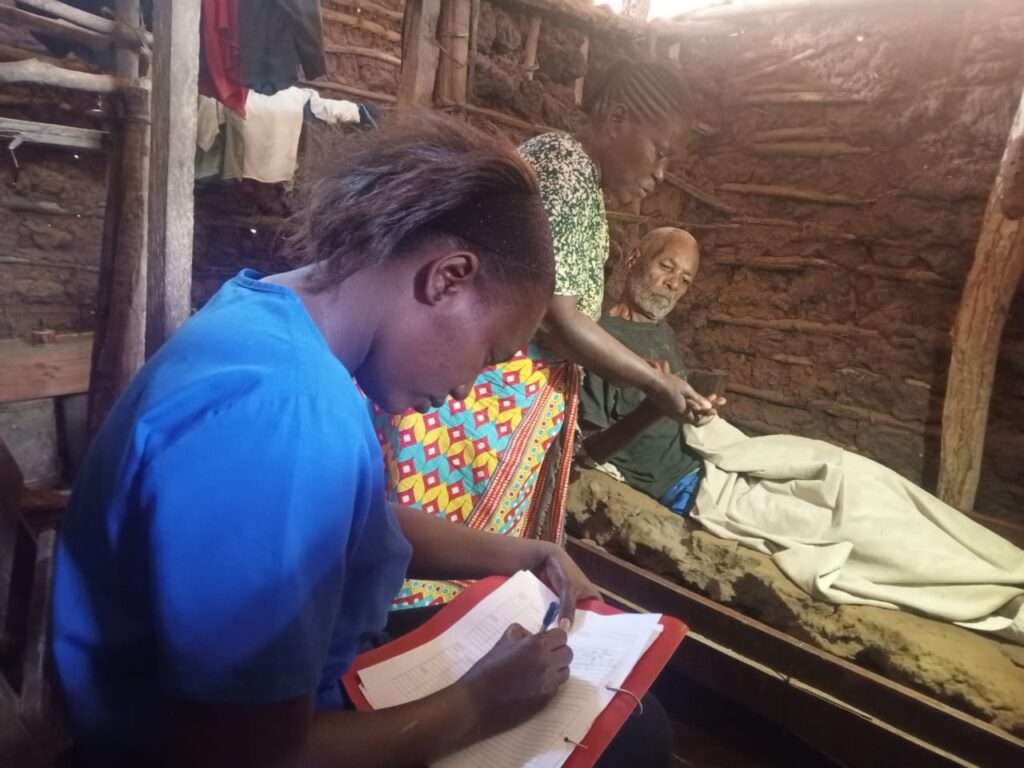
Home based care case study
“You have power over your health”.
The project is to improving maternal and community health through enhanced universal health coverage” is a three-year initiative that is funded by German Doctors and implemented by Community Health Promotion Fund (CHPF), in collaboration with North Coast Medical Training College, and Bomani-Malde Dispensary (a government facility) in Kilifi County Bomani Junju Mto/Mkuu sub-location. The project’s interventions aim to assist Kilifi County Health Department in improving access to universal health coverage services by assisting the implementation of existing Ministry of Health policies and guidelines. It aims at improving the maternal and community health of Bomani/Junju/Mto-Mkuu sub-location, Kilifi South with special attention to vulnerable and minority groups in addressing the existing needs of the rural population through different interventions being implemented.
The German Doctors are advocates for a life in dignity and provide healthcare services and training for disadvantaged people. German Doctors also strive to improve health in the long run through prevention programs, accompanying nutrition programs, and training in hygiene. Through the project, German Doctors wants to bring in human and other resources and use its experience, through collaboration with partners, to empower the local community, to improve provision of quality healthcare, and to support and improve existing systems to achieve UHC in the project area.
Home-based care program was introduced in the year 2022 to support patients who are in critical condition, patients who are not able to come to the dispensary. The program is being done by the doctors, clinical officers, social worker, physiotherapy, community health promoters and students from NMCT. The students mainly are coming in for learning and exposed to the community health dynamics.
We hve 200 patients on hypertension and diabetes, in records and …… are stable client whom are attending their clinic and adherence to drugs. As a project we give them health talks at the clinic’s day, HIPs and during outreaches; So, Irene Mkare is among the 12 patients whom were under the home-based care program.
Irene Mkarie takes a deep breath as she narrates her story, “am a mother of ……. Children and am a widow, am 62 years old, live in Chidongo village in Junju mto mkuu-ward in Kilifi sub- county. I never went to school, during our time our parents did not value education more so on a girl child. I come from a family of ………., of children and l was among of the girls who was not taken to school.
It has not been easy for me and my family when l was bed ridden with stroke, but I thank the German doctors’ services they offered for a period of ……. months, there is this lady German doctor l have forgotten her name, who also did a major work to take care of me on therapy sessions. I used to be visited like twice in a week for physiotherapy treatment and the other doctor used to give drugs and measure my pressure. He used to give me words of encouragement and always assures me that l will walk again and l will speak I will just be back to my normal situation. Which today my family is very happy especially my caretaker who is my daughter law she always gives out the testimony of me on the before and after the treatment We have 200 patients on hypertension and diabetes, in records and …… are stable client whom are attending their clinic and adherence to drugs. As a project we give them health talks at the clinic’s day, HIPs and during outreaches; So, Irene Mkare is among the 12 patients whom were under the home-based care program.
Irene Mkarie takes a deep breath as she narrates her story, “am a mother of ……. Children and am a widow, am 62 years old, live in Chidongo village in Junju mto mkuu-ward in Kilifi sub- county. I never went to school, during our time our parents did not value education more so on a girl child. I come from a family of ………., of children and l was among of the girls who was not taken to school.
It has not been easy for me and my family when l was bed ridden with stroke, but I thank the German doctors’ services they offered for a period of ……. months, there is this lady German doctor l have forgotten her name, who also did a major work to take care of me on therapy sessions. I used to be visited like twice in a week for physiotherapy treatment and the other doctor used to give drugs and measure my pressure. He used to give me words of encouragement and always assures me that l will walk again and l will speak I will just be back to my normal situation. Which today my family is very happy especially my caretaker who is my daughter law she always gives out the testimony of me on the before and after the treatment. Am also grateful to her because she was working very closely with the doctors and she was trained on how to take care of me. Until today she smiles, I call my daughter in-law my qualified home nurse, I can now speak which l couldn’t at all I was like a baby, I could not walk neither make any kind of movement l was a big burden to my caretake. But now I can walk off course not long distance, l can turn myself on the bed, l can eat on my own, which is a big relief to my family.
Bomani dispensary gives the best services, and the doctors have good heart of supporting people and they will always give you hope of life. I never thought l will be back to normal, and today here I am very live l can chat with the doctors, friends and neighbors who thought l will die. What l will say is that the German project is that; they have really saved the lives of people in this ward. I can tell you people are spending a lot of money for transport to get the kind of services that l received, and the people living in poverty and exclusion just die. She is sad, I was in a lot of pain, I felt lonely, tears rolling over my face, I never though l will be back to my feet the only thing l could think was just death, l was just seeing a grave Infront of my bed. Am so grateful to the community health promoters who reported my condition to the officers on the ground, if it were not to them, believe me l would have been dead.
May you continue saving lives of people living in poverty and exclusion everywhere you go and God will reward you abundantly; she smiles”.
As an organization we are happy with the progress of Irene Makire, no matter how devastated she was at the begging, because she lost hope and the family never thought she will recover. But with the closely monitoring by the doctors, it is amazing. Today Irene speak, laughs and walk, a bit independent, you would think that Irene suffered from severe stroke.
Kudos to the team of doctors-Dr. Rutger & Bea
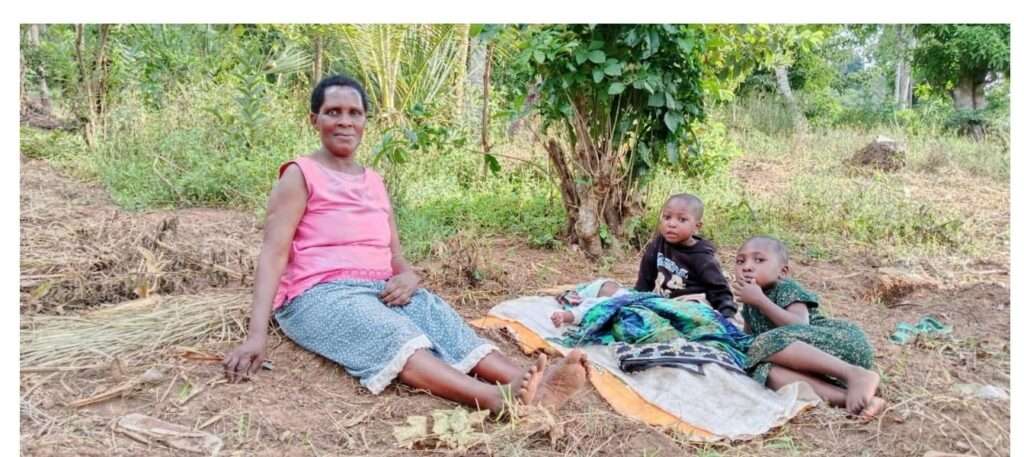
Community Health Promotion Fund – Registered Trustees
(CHPF) was registered at local level in 2015 and fully
incorporated at national level in Kenya in 2020. Its main
purpose is to support medical, health, and educational needs on
a charitable basis for needy Kenyans without discrimination.
Its core function lies in being a networking, liaison and
connecting body coordinating donor and partner support for
health in the wider area of Kilifi County in close collaboration
with the Ministry of Health and North Coast Medical Training
College (NCMTC). Ultimately, it is the dream of CHPF to
achieve equity in health and support the Kenyan government
in attaining the sustainable development goals in health and
Universal Health Coverage by 2030 by enhancing primary
health care at health care facility and community level and
linking healthcare provision to training of health workers.
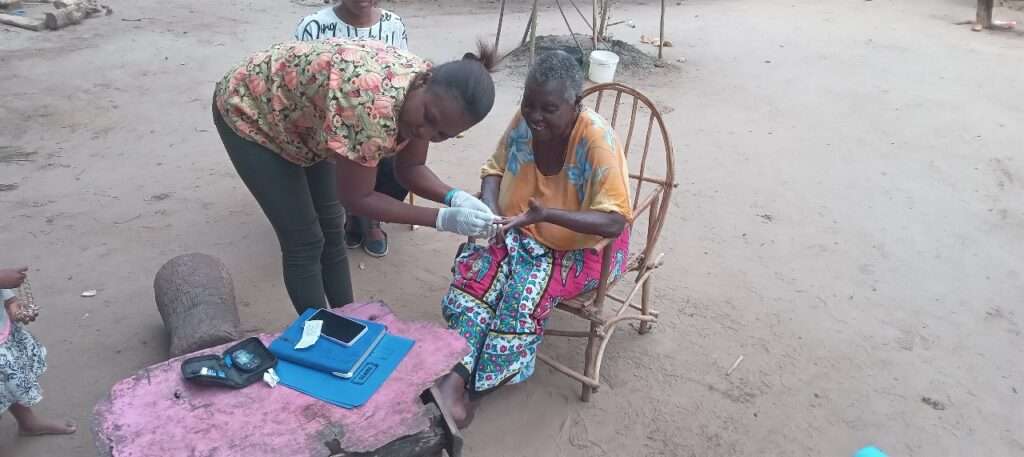
HIP Meetings
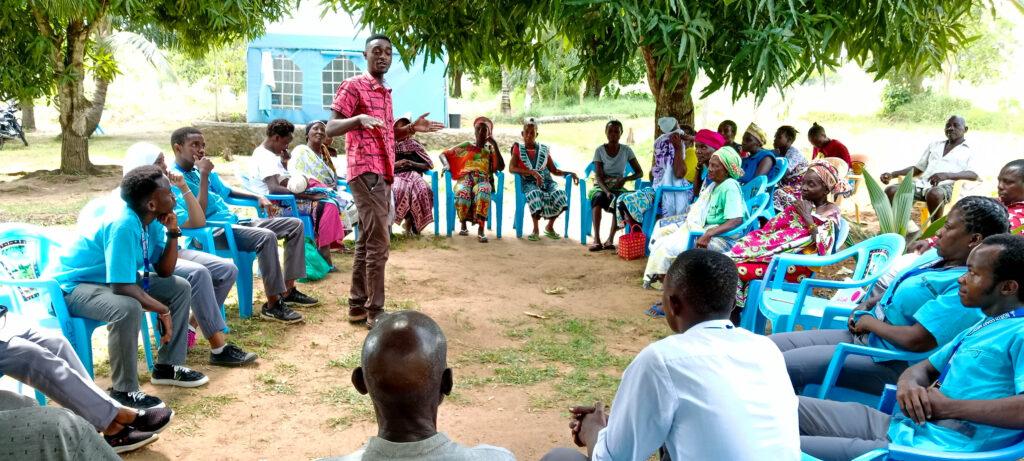
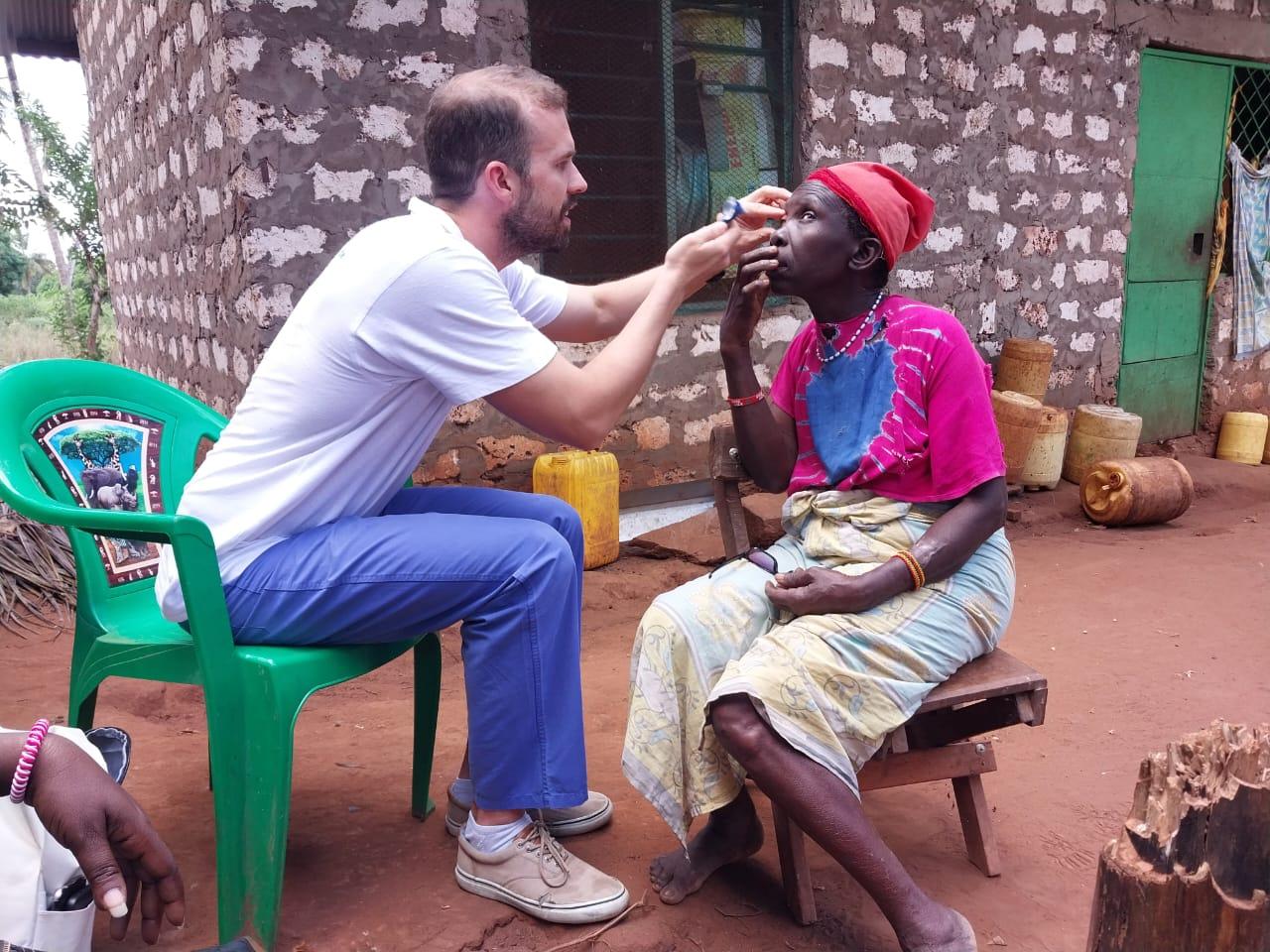
Community Health Promotion Fund eye specialist examines the vision condition of an infected woman in Junju ward, Kilifi Sub-County. This ensures ocular health, and functional ability is maximized thereby contributing to overall health, and wellbeing, social inclusion, and quality of life.
Stakeholders Meeting To Discuss Universal Health Care

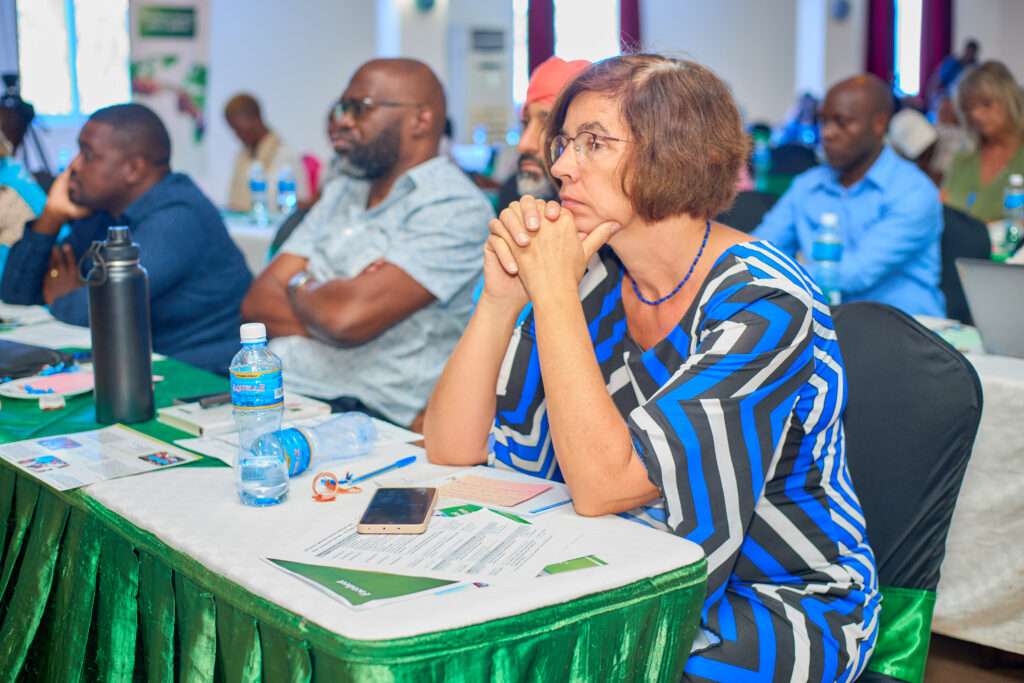
Annual stakeholders consultative meeting whose theme was achieving UHC outcome as per DR. Sultani Deputy Director General For health.
The Community Health Promotion Fund (CHPF) Annual Stakeholders Consultative Meeting held in October 2024 was themed “Achieving milestones towards UHC: innovations, opportunities, and challenges”
The forum aimed to drive a network of collaborations and partnerships in promoting primary health care within the community.
Speaking at a Mombasa Hotel during the forum, the Kenyan Deputy Director General for Health, Sultani Matendechero, noted that from October 2024 every household would contribute 2.75 per cent of their gross income to the Social Health Insurance Fund (SHIF) and how this will significantly increase the funds available for health care with low-income earners are set to benefit more from, as under the new model, every individual will contribute according to their earnings to achieve an equitable premium.
Dr. Matendechero further assured the stakeholders in the meeting that in the long term, this model is going to enable us to optimally finance all our healthcare needs towards realisation of Universal Health Coverage (UHC) despite the challenges being encountered in the transition.
The move will see over 126,000 patients suffering from diabetes having access to healthcare, thus managing the disease at an early stage to prevent further complications. Additionally, he stated that the same shall happen with high blood pressure patients, noting that over 300,000 patients have been linked to health facilities to ensure they can start early treatment of hypertension.
The Community Health Promotors (CHPs) were lauded for their concerted efforts to improve healthcare within the community, especially at the grassroots level. It was noted that some non-communicable diseases account for high numbers of deaths within the country, and CHPs play an important role in reducing the impact of hypertension and diabetes. Furthermore the vital role of CHP in linking pregnant mothers to antenatal care clinics across the country was emphasized.
The Deputy Director of Health commended the CHPF team for the significant impact they have on UHC. Through investment in health promotion and disease prevention savings can be made in the cost of treatment, rehabilitation, and palliative care.
Through Health Information Points (HIPs) CHPF has reduced the burden of travelling a long distance for patients. CHPF runs five HIPs in Kilifi-South aimed at bringing health services closer to the people. Five more will be established next year. The HIPs are a meeting point for CHPs, medical staff, and clients. Dr. Matendechero noted that the government has improved access to information collected by the CHPs and lauded CHPF for supporting them including their exemplary role in linking pregnant mothers to antenatal care clinics.
“We are expecting that by involving CHPs more, we are going to see a drastic reduction in the number of mothers who are losing their lives during birth, which has been a tragic issue we have witnessed in the public health system,” said the Deputy Director of Health.
On his part, the Chair of the Board of Trustees of CHPF, Reuben Waswa, who is also the Director of the North Coast Training College, said to further promote healthcare at the grassroots level, CHPF is working closely with HELB to provide funds for the less fortunate students within the health sector.
BENCHMARKING ON UHC
What a blessing!!!! On Tuesday 13th April 2025 we had a fantastic moment with the the guests from 7 counties who came on board for a case study on the operations of the Health Information Points with regards to the Universal Health Care mission. The seven counties were: Kilifi county, Lamu county, Machakos, Tana-River county, Makueni county, Kitui and Mombasa. There was also a repetitive from the council of governors, DANIDA PHC, CMMB-Kenya, KRCs and LVET-Kenya.
The day was marked with a well documented Health Information Point Concept from the North Coast Medical Training College Director Dr. Reuben Waswa who is also the founder of CHPF and the inventor of the ideology. They were able to learn from our Health Information Point at Kireme and also had time to engage one on one with the Bomani Dispensary which is a hub of UHC in kiliifi south sub-county. Our efforts and services at the dispensary is significant through the various community centered initiatives which are more of promotive, preventive and palliative/rehabilitative within the catchment area. This is in line to the MOH community strategy. Besides, routine and non-routine data is collected on a regular basis for the purposes of establishing disease trends, and referrals and counter referrals in the community, within the concept referred to as sentinel surveillance.
We shared on the dynamics affecting the health sector and how we have managed to address them more so at the primary level. CHPF and the North Coast Medical Training College in partnership with MOH Kilifi county, Kilifi south Sub-county put measures in place to see the UHC goal accomplished.
This is evident through our community centered interventions through the various projects such as: Community Based Education Education and Services (COBES), Mzazi na Mtoto ANC and PNC programs, the health in the old age, school health program, eye health, social work services, child protection services, kitchen gardening to address malnutrition, home based care, rolling clinics under the German doctors to the dispensaries apart from Bomani among others. All this contributes to the growth of Bomani, Barani junju and Mtepeni dispensaries and realization of universal health care in the community.
For sustainability CHPF and NCMTC capacitates the community through trainings and sensitizations to the CHPs, CHCs, DHCs and the general public.



